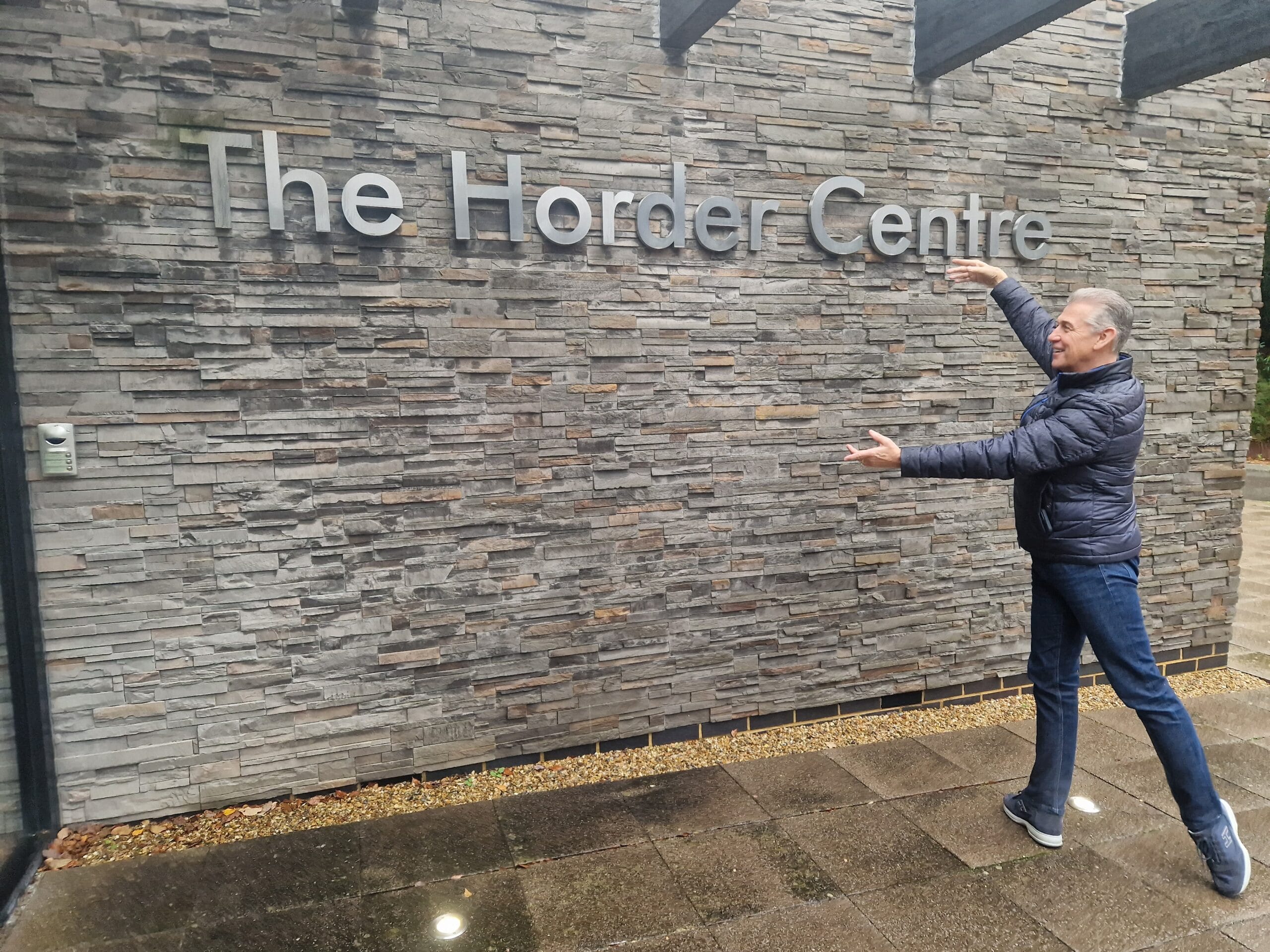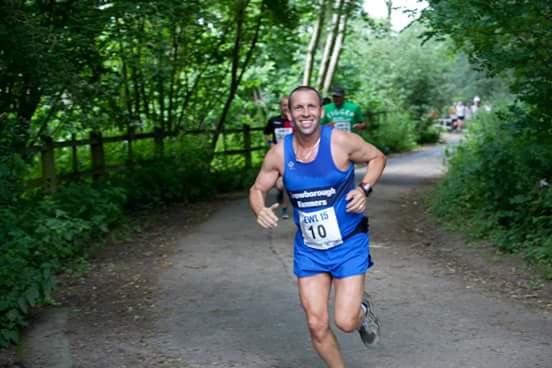Raising the barre: dancing again after knee replacement surgery
Discipline, mobility and alignment are just some of the myriad of skills required as a ballet dancer. But what happens when chronic knee pain starts to limit your movement, threatening your ability to perform?
Sitting on the sidelines was never going to be an option for retired professional ballet dancer Chris Howes-Burrows. As a dancer, he was no stranger to managing pain from injuries and intense routines, but the general wear and tear on his knee over the years led to pain that required expert attention.
Chris, 62, from Wadhurst, first saw Orthopaedic Surgeon Andrew Armitage around 12 years ago, when a knee arthroscopy at The Horder Centre showed the knee had bone-on-bone arthritis. Over the years, steroid injections were administered to ease the pain.
Several years ago, Chris was keen to try Platelet-Rich Plasma (PRT) Therapy, which uses injections of your own blood platelets to help with healing, but Mr Armitage advised that his condition was too advanced to benefit from it and that a knee replacement would be the best option.

Sitting on the sidelines was never going to be an option for retired professional ballet dancer Chris Howes-Burrows. As a dancer, he was no stranger to managing pain from injuries and intense routines, but the general wear and tear on his knee over the years led to pain that required expert attention.

Chris, 62, from Wadhurst, first saw Orthopaedic Surgeon Andrew Armitage around 12 years ago, when a knee arthroscopy at The Horder Centre showed the knee had bone-on-bone arthritis. Over the years, steroid injections were administered to ease the pain.
Several years ago, Chris was keen to try Platelet-Rich Plasma (PRT) Therapy, which uses injections of your own blood platelets to help with healing, but Mr Armitage advised that his condition was too advanced to benefit from it and that a knee replacement would be the best option.
“It was a sharp pain that got progressively worse,” said Chris. “I tried to manage it, but I started to walk less and less. It got to the point where I wasn’t walking at all because I was reserving myself for dancing.
“The turning point was during a ballet class and not being able to perform a full plié.”
Chris’ knee replacement took place in September 2023. He stayed in the hospital for two nights and attended the group exercise sessions. These sessions are crucial for the physiotherapists to measure the bend in your knee and show you the exercises that need to be completed during your recovery at home.
“It was a sharp pain that got progressively worse,” said Chris. “I tried to manage it, but I started to walk less and less. It got to the point where I wasn’t walking at all because I was reserving myself for dancing.
“The turning point was during a ballet class and not being able to perform a full plié.”
Chris’ knee replacement took place in September 2023. He stayed in the hospital for two nights and attended the group exercise sessions. These sessions are crucial for the physiotherapists to measure the bend in your knee and show you the exercises that need to be completed during your recovery at home.
Chris’ active lifestyle contributed to a quick and successful recovery. He started walking with his crutches around Crowborough’s running track as the soft surface provided a welcome comfort.
Ten days later, he started to use just one crutch. Within a couple of weeks he was in the gym exercising the top half of his body, before gradually incorporating squats and calf raises.
Chris adds: “The physiotherapy team were great. The operation is a small part of the experience. It is the recovery that is bigger. It is really important to listen to what you are told and to act on it. Andrew can fix my knee, but he can’t make me do the exercises. Everything is in your control.
“Andrew is a brilliant surgeon. He has the ability to accommodate people’s different approaches to fitness and he recognised when the time was right for me to have surgery.”
Mr Armitage said: "Knee replacement surgery for severe arthritis can be very successful at improving a patient's quality of life and ability to function on a daily basis. A key decision is when to have the surgery."
"I have looked after Mr Howes-Burrows for the past 12 years, discussing and performing appropriate interventions for the management of his arthritic knees based on his symptoms and level of function at that time. Recently it became evident he had reached the stage where he would benefit from a knee replacement and with this successful surgery, his hard work and positive attitude, and support from the Horder Centre physiotherapy team, we are all pleased with his excellent progress and outcome."
Andrew Armitage, Consultant Orthopaedic Surgeon
We provide outstanding patient experiences
The Horder Centre is an award-winning Centre of Excellence that offers patients a unique therapeutic environment. Specifically designed for orthopaedic surgery, our facilities include a physiotherapy inpatient gym and courtyard gardens designed by clinical experts to enhance recovery. Finance options available.
Read our patient testimonials
Find out what it’s like to be a patient, from the people who matter the most.






